Aluminum vs Fiberglass Fishing Boats: Pros and Cons for Every Angler
When it comes to choosing a fishing boat, the decision often boils down to two popular materials: aluminum and fiberglass. Each has its own set of advantages and drawbacks that can significantly impact your fishing experience. Understanding these pros and cons can help you make an informed choice tailored to your needs.
Aluminum boats are known for their durability and lightweight design, making them easy to maneuver and transport. On the other hand, fiberglass boats offer a smoother ride and greater customization options. By weighing the benefits and limitations of both materials, you can find the perfect vessel to enhance your time on the water. Let’s dive into the key differences to help you decide which type of fishing boat suits you best.
Understanding Aluminum Fishing Boats
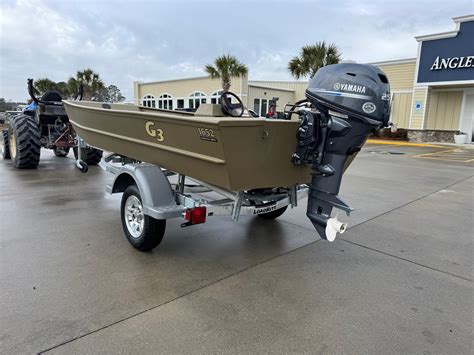
Aluminum fishing boats are popular for their impressive durability and lightweight design. They offer a range of advantages that make them a solid choice for many anglers.
Overview of Aluminum Fishing Boats
Aluminum fishing boats come in various shapes and sizes, catering to different fishing needs. You’ll find models suitable for both freshwater and saltwater environments. These boats often feature a rugged construction that withstands harsh conditions, while also being easy to tow and maneuver on the water.
Key Features of Aluminum Fishing Boats
- Durability: Aluminum boats resist corrosion and are built to last, even in tough environments. They can handle rough waters and rocky shores without easily sustaining damage.
- Lightweight: Their lightweight nature makes them easy to transport. This convenience allows for better fuel efficiency and easier handling on and off the water.
- Affordability: Generally, aluminum boats are more budget-friendly compared to fiberglass counterparts. Their lower initial cost and minimal maintenance help you save money in the long run.
- Stability: Aluminum fishing boats often provide excellent stability on the water, which is essential when casting lines or reeling in fish.
- Customization Options: Many manufacturers offer various accessory options, such as rod holders and live wells, allowing you to tailor your boat to fit your specific fishing style.
- Low Maintenance: You won’t need to worry as much about gel coat damage or fading. A simple rinse after use can keep your aluminum boat looking good for years.
- Impact Resistance: Aluminum has high resistance to impacts, making it ideal for anglers who frequently navigate rocky, shallow waters.
Exploring Fiberglass Fishing Boats
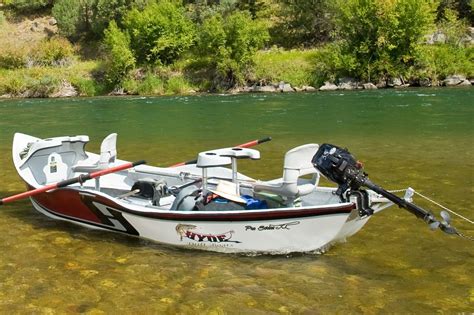
Fiberglass fishing boats have long been a popular choice among anglers. They offer a combination of smooth rides and stylish designs, making them appealing for both recreational and serious fishing enthusiasts.
Overview of Fiberglass Fishing Boats
Fiberglass boats consist of reinforced plastic resin, providing a strong yet flexible structure. This material allows for a variety of sizes and styles, catering to different fishing needs. You’ll find fiberglass boats in lengths from small 14-foot skiffs to large offshore vessels over 30 feet. They’re known for their aesthetic appeal, often featuring gel-coat finishes that come in various colors, enhancing their visual attractiveness on the water.
Key Features of Fiberglass Fishing Boats
- Smooth Ride: Fiberglass boats tend to offer a smoother ride than aluminum boats. Their design helps absorb waves, minimizing jarring impacts, which is crucial during long fishing trips.
- Customization Options: Fiberglass allows for more intricate designs and configurations. You can find numerous layouts, from open decks for easier mobility to fully enclosed cabins for comfort.
- Stability and Performance: Fiberglass boats generally have superior stability in the water. This stability creates a safer fishing environment and enhances overall performance, especially in rough waters.
- Durability: While they may not have the same impact resistance as aluminum, fiberglass boats are still quite durable. They resist rot and corrosion, making them excellent choices for saltwater fishing.
- Maintenance Requirements: Fiberglass boats require specific maintenance, such as gel-coat upkeep and checking for stress cracks. However, they don’t need the frequent upkeep that aluminum boats do to remain corrosion-free.
- Resale Value: Fiberglass boats often hold their value well. Their aesthetic appeal and reputation for quality can make them easier to sell down the line.
By considering these key features, you can better understand whether a fiberglass fishing boat matches your fishing lifestyle and preferences.
Aluminum Fishing Boats Pros and Cons
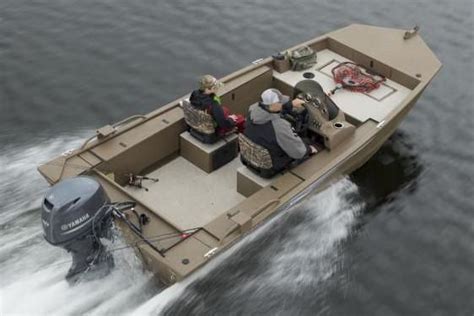
When choosing an aluminum fishing boat, it’s essential to weigh both the advantages and disadvantages.
Advantages of Aluminum Fishing Boats
- Durability: Aluminum boats resist corrosion and can withstand harsh marine conditions. They’re built to last and handle rough use.
- Lightweight Design: Aluminum offers a lightweight construction, making it easier for you to tow and maneuver. This also means better fuel efficiency while traveling.
- Affordability: Compared to fiberglass, aluminum boats typically come with a lower price tag. You can often find quality options within your budget.
- Low Maintenance: Aluminum boats require minimal upkeep. A simple wash and occasional inspections are usually enough to keep them in shape.
- Customization Options: Aluminum boats can be easily customized with various features, such as storage compartments, fishing gear mounts, and seating arrangements.
- Stability on Water: These boats provide a solid, stable platform. Whether you’re casting lines or reeling in big catches, you’ll feel secure on the water.
- Efficient Repair: Should your aluminum boat sustain damage, repairs are generally simpler and less costly than those for fiberglass boats.
Disadvantages of Aluminum Fishing Boats
- Noise Levels: Aluminum boats can be noisier than fiberglass boats. The hull may produce more sound when hitting waves, which could disturb your fishing experience.
- Less Insulation: Aluminum doesn’t provide the same insulation as fiberglass. You may feel the cold more in cooler waters or windy conditions.
- Dents and Scratches: While durable, aluminum can still dent or scratch easily in some scenarios, which may affect the boat’s aesthetics over time.
- Limited Style Options: Aluminum boats often lack the sleek designs that fiberglass boats offer, which may matter if style is important to you.
- Less Weight Capacity: Depending on the design, some aluminum boats may have lower weight capacities than their fiberglass counterparts, making it necessary to plan your load carefully.
Fiberglass Fishing Boats Pros and Cons
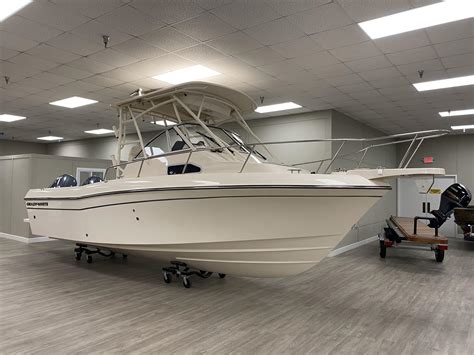
Fiberglass fishing boats have unique advantages and disadvantages that can significantly impact your experience on the water. Here’s a closer look at the pros and cons.
Advantages of Fiberglass Fishing Boats
- Smooth Ride: Fiberglass boats offer a smoother ride on the water by effectively absorbing waves, ensuring comfort during your fishing trips.
- Aesthetic Appeal: Fiberglass boats come in stylish designs and vibrant colors, giving you more options to match your personal style while on the water.
- Durability: Fiberglass resists rot and corrosion, making it an excellent choice for saltwater fishing environments without fear of material degradation.
- Superior Stability: The weight and design of fiberglass boats provide excellent stability, enhancing your overall fishing experience and reducing the likelihood of capsizing.
- Higher Resale Value: These boats typically hold their value better than aluminum boats, making them a smart investment if you plan to resell in the future.
- Customization Options: Fiberglass allows for intricate designs and modifications, giving you the flexibility to tailor your boat specifically to your fishing needs.
Disadvantages of Fiberglass Fishing Boats
- Maintenance Requirements: Fiberglass boats need regular maintenance, such as gel-coat repairs and cleaning, to prevent damage and maintain appearance.
- Weight: These boats can be heavier than aluminum counterparts, which may affect towing capacity and maneuverability, particularly in shallow waters.
- Cost: Generally, fiberglass boats come with a higher purchase price compared to aluminum, which could impact your budget for fishing gear.
- Vulnerability to Damage: While robust, fiberglass can be susceptible to cracks and chips if hit hard, leading to potentially costly repairs.
- Less Insulation: Fiberglass does not provide as much insulation as aluminum, meaning it might not be as effective in extreme weather conditions.
- Heat Retention: Fiberglass surfaces can get hot under direct sunlight, making it uncomfortable to walk on without shoes during warm days.
Comparing Aluminum and Fiberglass Fishing Boats
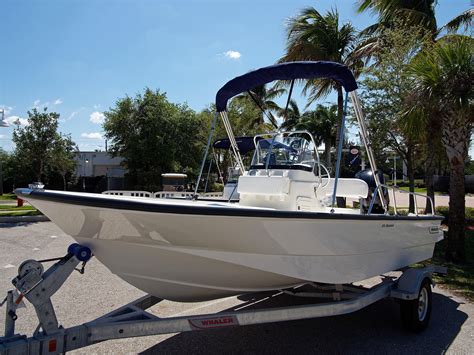
Choosing between aluminum and fiberglass fishing boats comes down to various key factors. Here’s a detailed comparison to help you assess these two materials effectively.
Cost Comparison of Aluminum and Fiberglass Boats
You’ll notice that aluminum boats generally offer a lower initial purchase price. Typically, aluminum can cost 10-30% less than fiberglass models of similar size and features. If you’re on a budget, aluminum may be the more suitable option. However, consider that fiberglass boats often offer better resale value, helping to recover some of your investment down the road. So, while the upfront cost of fiberglass may be higher, their longevity could make them financially advantageous in the long run.
Durability Comparison of Aluminum and Fiberglass Boats
You should know that aluminum boats are highly durable and can withstand harsh marine conditions. They’re resistant to corrosion and don’t splinter, which makes them ideal for rocky waters. In contrast, fiberglass boats are also durable, resisting rot and corrosion as well, yet they can be more susceptible to impact damage like cracks. This means if you fish in waters with debris or rocky areas, aluminum might be the better choice for peace of mind regarding durability.
Performance Comparison of Aluminum and Fiberglass Boats
You’ll find that each material offers distinct performance characteristics. Aluminum boats tend to be lighter, which can enhance speed and maneuverability. They can often get on plane quickly, making them nimble for fishing in shallow waters. On the other hand, fiberglass boats excel in providing a smoother ride due to their design and heavier build, effectively absorbing waves. If you prioritize a comfortable, stable ride for longer excursions, fiberglass might suit your needs better, while aluminum is great for quick trips and agility.
Frequently Asked Questions
What are the main advantages of aluminum fishing boats?
Aluminum fishing boats are known for their durability, lightweight design, and affordability. They resist corrosion, require low maintenance, and are generally easier to tow and maneuver. Additionally, they can withstand harsh marine conditions, making them a great option for various fishing needs.
What are the drawbacks of aluminum fishing boats?
The cons of aluminum boats include increased noise levels, vulnerability to dents and scratches, limited style options, and potentially lower weight capacities. They also have less insulation compared to fiberglass boats, which can affect comfort in certain conditions.
Why choose fiberglass fishing boats?
Fiberglass boats are favored for their smooth rides and stylish designs. They absorb waves well, provide superior stability, and can be customized extensively. Their resistance to rot and corrosion makes them suitable for saltwater fishing, and they typically hold their value well, enhancing resale potential.
What are the downsides of fiberglass fishing boats?
Fiberglass boats require regular maintenance, particularly for gel-coat upkeep. They are heavier, which can impact towing and maneuverability, and generally have higher purchase costs. Additionally, they can be vulnerable to damage and may retain heat under direct sunlight.
How do aluminum and fiberglass boats compare on price?
Aluminum boats usually have a lower initial purchase price, making them budget-friendly for buyers. In contrast, fiberglass boats may have higher upfront costs but tend to offer better resale value in the long run, appealing to those considering future investments.
Which type of boat performs better for quick trips?
Aluminum boats are generally more agile due to their lighter weight, making them ideal for quick trips and easy maneuvering in various waters. They provide a practical option for anglers looking for fast and efficient travel on the water.
Are there specific maintenance needs for each boat type?
Yes, aluminum boats require minimal maintenance, mainly involving cleaning and occasional repairs. Fiberglass boats, however, need regular upkeep, including gel-coat maintenance to prevent damage and ensure longevity, especially in saltwater environments.
Conclusion
Choosing between aluminum and fiberglass fishing boats ultimately depends on your specific needs and preferences. If you’re looking for a lightweight and budget-friendly option that can handle tough conditions aluminum might be the way to go. Its durability and low maintenance make it a practical choice for many anglers.
On the other hand if you prioritize a smooth ride and aesthetic appeal fiberglass could be your best bet. Its resistance to rot and corrosion along with higher resale value can be significant advantages.
Evaluate your fishing style budget and the conditions you’ll face on the water. By considering these factors you can confidently select the boat that best suits your fishing adventures.
